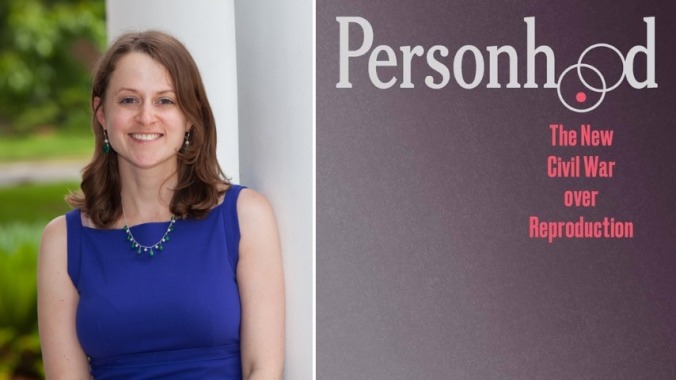Fetal Personhood, ‘Once a Moon Shot,’ Has Never Been More Possible
The movement’s goal is to establish enough legal precedent so that “eventually…if a question of fetal personhood reaches the Supreme Court, lawyers can say, ‘See?’” Mary Ziegler, author of Personhood: The New Civil War Over Reproduction, told Jezebel.
Photo: iStockphoto AbortionBooksPolitics
Since January, at least 11 state legislatures have introduced bills that would recognize having an abortion as homicide. The point of these laws, legal experts warn, is establishing fetal personhood: statutory recognition of embryos and fetuses as separate, living people, with rights that are often at odds with those of the pregnant person. Implicit recognition of fetal personhood has already existed all around us for decades—take, for instance, women who face criminal charges for losing their pregnancies, or who are charged with “child endangerment” if they struggle with substance abuse while pregnant.
But the fetal personhood movement has been thrust into the limelight since Dobbs v. Jackson Women’s Health allowed a tidal wave of state abortion bans to take effect, with some of these laws directly asserting that “life begins at conception.” In Mary Ziegler’s new book, Personhood: The New Civil War Over Reproduction, the historian and law professor traces the long, absurd history of the movement, rising from the fringes of American politics to the alarming, central place it holds today.
The Dobbs decision, Ziegler writes, was really just the beginning for the fetal personhood movement; its endgame is a Supreme Court ruling establishing equal protection for fetuses under the Constitution. Today, there’s a real path for that, Ziegler told Jezebel—a path paved by flooding the zone with state legislation recognizing abortion as homicide, or requiring “fathers” of unborn fetuses to pay child support, or equating pregnancy loss with “wrongful death,” or even, say, legislation to allow pregnant people to drive in carpool lanes. The goal is to normalize and establish as much legal precedent for fetal personhood as possible, Ziegler said, so that, “eventually, you’ll have enough state laws or lower court decisions that if a question of fetal personhood reaches the Supreme Court, lawyers can say, ‘See? Look at all the precedent for this.’” One example of a lower court ruling that attorneys could reference? The Alabama Supreme Court’s 2024 decision recognizing frozen embryos as “extrauterine children” whose destruction is eligible for wrongful death lawsuits.
-

-

-

-

-

-

-

-

-

-

-

-

-

-

-

-

-

-

-

-

-

-

-

-

-

-

-

-

-

-

-

-

-

-

-

-

-

-

-

-









































